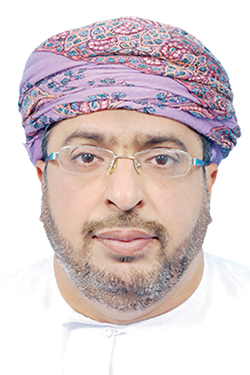

Haider Al Lawati - haiderdawood@hotmail.com - The region’s financial markets need more autonomy to operate on a commercial basis to attract more domestic and foreign investment. Accordingly, the Capital Market Authority (CMA) recently approved the transformation of Muscat Securities Market into a wholly-owned subsidiary of the State’s General Reserve Fund, in preparation for its future public offering. This decision was based on a study proposal prepared on the transformation of the market into a company. MSM’s subsidiary status to the CMA puts it under the latter’s authority and supervision all at once, which may constitute a departure from the structural framework under which MSM must operate. It will also allow CMA to improve market’s performance of the market, and focus on its role as a regulatory and supervisory body.
The next phase of MSM’s future depends on the continuous efforts of the CMA and other economic stakeholders in the country to speed up privatisation, encourage family businesses to turn into public shareholding companies and offering new shares of leading investment companies. Officials believe that they have delayed MSM’s conversion into a company, which cost it numerous potential advantages and placed it outside the framework under which most regional and global financial markets operate.
The change comes after studies conducted by CMA, MSM and selected clearing houses convinced them that the experiment will succeed. Singaporean and French studies also made them convert MSM into a company.
MSM is one of the first markets established in the region under a general corporate institutional framework in 1988 after Kuwait Capital Market. Thus, converting MSM into a company has many advantages, mainly flexibility in decision-making especially that the CMA monitors MSM and holds it accountable in the event of failure to perform. It is a global trend today, with no exception, that stock exchanges remain independent companies.
All GCC and Arab markets have converted into companies or are on their way to it except for some small markets. Therefore, officials stress the importance of keeping pace with the global transformation of market regulation and the provision of appropriate environments that ensure success, continuity and excellence.
MSM is considered one of the first markets established in the region, yet it is faced with challenges hindering its evolution, including investment policy of Omani pension funds which buy shares and keep them, which leads to the concentration of stock ownership among these funds, and thus impedes MSM’s performance and trading volumes. These funds own 70 per cent of available tradable shares, making MSM fall behind in the region’s market race.
Generally speaking, Oman’s securities market experience is short compared to some other Arab countries that established financial markets before the 1950s. MSM gradually developed its performance, especially at the legislative, regulatory, technical and performance levels, but continued to achieve good performance levels despite the challenges and difficulties facing it from time to time.
Oman Observer is now on the WhatsApp channel. Click here



